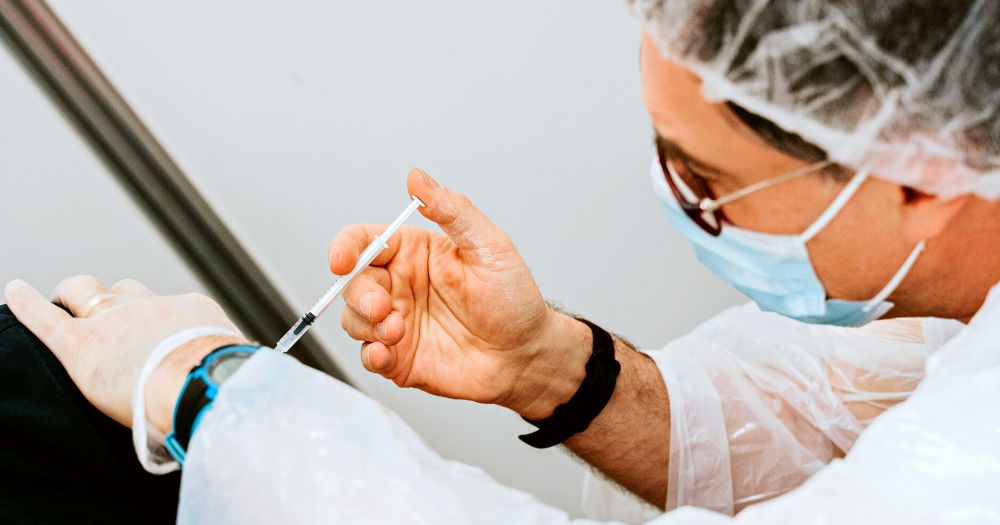On Monday, July 4, Minister for Health Stephen Donnelly got clearance from the Cabinet enabling Ireland to soon receive more monkeypox vaccines under the European Commission’s Health Emergency Preparedness and Response Authority (HERA).
The Health Protection Surveillance Centre (HSPC) announced the first monkeypox case in Ireland on May 28, and as for their latest update (June 30), the country now has 39 confirmed cases.
The Irish Government previously purchased a batch of Smallpox vaccines called Imvanex, with the HSE confirming to GCN that they had “received a supply” and that they “will be used in response to monkeypox.”
The new doses supplied by the European Commission as announced on Tuesday are the Jynneos vaccine, which is the market name of a modified Vaccinia Ankara.
Ireland will be one of the first countries to receive the additional monkeypox vaccines from the European Commission. The number of doses may vary depending on how many countries sign up for the procurement.
According to the National Immunisation Advisory Committee (NIAC), the vaccines should be offered to close contacts of confirmed cases and health care workers treating people with the infection.
60 Second Monkeypox Update with
Dr Natasha Rafter from @hpscireland
&
Prof Fiona Lyons @_respectprotectIt's really important to be aware of #monkeypox and its symptoms so that we can protect ourselves and others.
For more info visit https://t.co/7QjW2Us8jU pic.twitter.com/Nq90J0dhwK
— Man2Man Programme (@Man2ManIreland) July 6, 2022
The World Health Organization (WHO) Regional Office for Europe and the European Centre for Disease Prevention and Control (ECDC) have outlined what the public should know about monkeypox.
What is monkeypox?
Monkeypox is a virus that causes a disease with the same name. Its incubation period is between 5 and 21 days. Monkeypox is often self-limiting, meaning symptoms usually go away within two to four weeks without treatment.
What are the symptoms I should look out for?
Symptoms can be mild to severe. They include:
- Rash on face, hands, feet, eyes, in mouth, inside or around the anus, and/or on and around the genitals. May appear with blisters
- inflammation and pain in rectum
- fever
- swollen lymph nodes
- headaches
- muscle aches
- low energy
Symptoms usually begin with a fever, muscle aches, backache, fatigue and then progress to lesions, a rash, and painful lymph nodes. Lesions and rashes can start on the hands, neck, and face and may then spread to the rest of the body. The rash is usually painful and uncomfortable.
In this latest outbreak, a number of cases have been detected in gay, bisexual and men who have sex with men, with lesions and rashes appearing on or around the genitals, on or around the anus, or in the mouth.
However, it is important to emphasise that anyone can catch monkeypox if they have close physical contact with an infectious person, regardless of their sexual orientation. People more at risk of exposure to monkeypox include household members and sexual partners, commercial sex workers, and health workers.
How is monkeypox spread?
Monkeypox is not normally easily spread between people. To catch monkeypox you need to have prolonged close contact with someone who already has monkeypox, or with their contaminated belongings. Having direct skin-to-skin contact with the rash or lesions of someone with monkeypox is particularly risky. Our advice is to, among other things:
- Practice safer sex, including limiting the number of sexual partners. Wearing condoms can reduce but not fully eliminate the risk of infection with monkeypox.
- Keep your hands clean, using soap and water, or alcohol-based sanitiser.
What can I do if I suspect I have monkeypox?
If you have any monkeypox-related symptoms, follow your health provider and health authorities’ guidance, including:
- Avoid large gatherings, parties, festivals, and crowded events.
- Take a break from having sex until you’ve sought medical advice and have been confirmed to be well/recovered.
- Report your symptoms to an STI clinic or other health provider.
- Get tested for monkeypox, as advised.
What should I do if I am confirmed with monkeypox?
Follow your health provider and health authorities’ guidance, including:
- Isolate until your symptoms disappear (when the last scab has fallen off and a layer of skin has grown over the lesion).
- Take a break from sex. Because of uncertainty about transmission, as a precaution wear a condom during sexual activities for 12 weeks after the lesions have healed.
- Avoid contact with people more vulnerable to severe disease from monkeypox (pregnant women, young children, immunocompromised people).
- Share your contacts with health authorities so they can be informed and can protect themselves and others. In line with your national regulations, if you do not feel able to share this information, consider contacting close contacts yourself or ask a healthcare provider to do so anonymously.
For further monkeypox updates in Ireland including information on vaccines, visit Man2Man and MPOWER’s websites.
© 2022 GCN (Gay Community News). All rights reserved.
Support GCN
GCN is a free, vital resource for Ireland’s LGBTQ+ community since 1988.
GCN is a trading name of National LGBT Federation CLG, a registered charity - Charity Number: 20034580.
GCN relies on the generous support of the community and allies to sustain the crucial work that we do. Producing GCN is costly, and, in an industry which has been hugely impacted by rising costs, we need your support to help sustain and grow this vital resource.
Supporting GCN for as little as €1.99 per month will help us continue our work as Ireland’s free, independent LGBTQ+ media.
